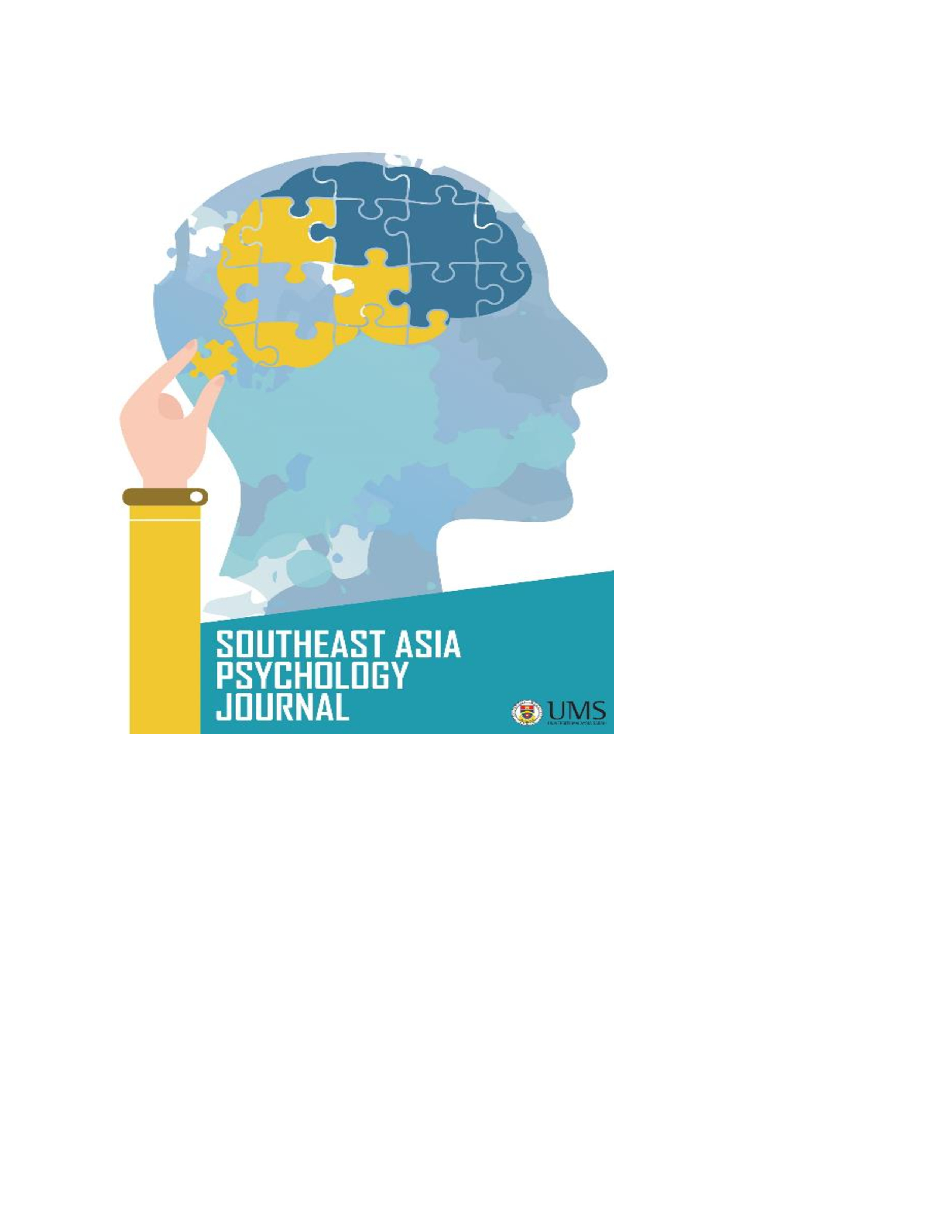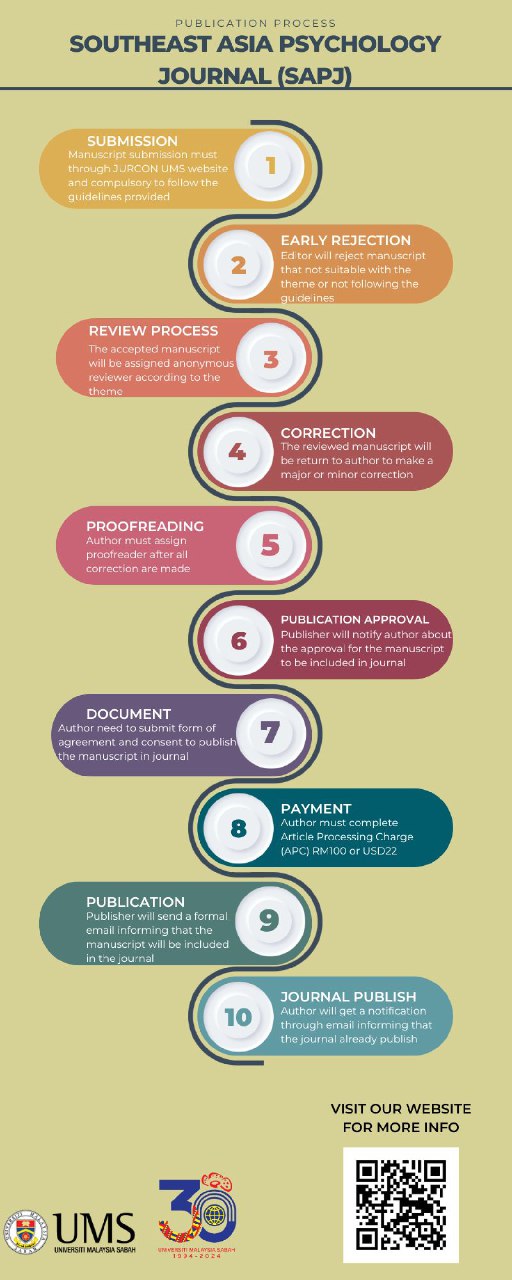WORK ENGAGEMENT OF GOVERNMENT AGENCY IN ORGANIZATIONAL OF AIRPORT AUTHORITY JAKARTA: THE ROLE OF PSYCHOLOGICAL CAPITAL
DOI:
https://doi.org/10.51200/sapj.v10i1.4922Keywords:
Work Engagement, Psychological Capital, Self-Efficacy, Hope, Resiliency, OptimismAbstract
The main task of the organization is able to increase engagement work to achieve organizational goals more advanced and able to face global challenges The purpose of this study is to see the influence of the psychogical capital which consists of four aspects namely self-efficacy, optimism, hope, resiliency. Which acts in forming work engagement. Design of this research is a survey, which involved 87 employees of Airport Authority Office Area I Jakarta. There are three questionnaires are used in data collection. Prerequisites test conducted prior to test hypothesis that consists of data normality test, linearity, multikoliniearitas, autocorrelation, and heterodeskosititas. The research proves that psychological capital can predict work engagement. Based on the test results of these studies we can conclude that the psychological capital can predict the work engagement of employees in the Office of Airports Authority Region 1 Jakarta, Indonesia.
References
Amaliah, A., & Wardani, L. M. I. (2021). Psychological Capital, Psychological Empowerment, dan Employee Well-Being. NEM.
Anwar, N., & Wardani, L. M. I. (2021). Career Competencies for Millennials. NEM.
Avey, J. B., Luthans, F., & Youssef, C. M. (2010). The additive value of positive psychological capital in predicting work attitudes and behaviors. Journal of Management, 36(2), 430–452.
Bakker, A. B. (2011). An evidence based model of work engagement. Current Directions In Psychological Science, 20(14), 265–269. doi:10.1177/0963721411414534
Bakker, A. B., & Demerouti, E. (2007). The job demands-resources model: State of the art. Journal of Managerial Psychology, 22(3), 309–328. doi:10.1108/02683940710733115
Bakker, A. B., & Demerouti, E. (2008). Towards a model of work engagement. Career Development International, 13(3), 209–223. doi:10.1108/13620430810870476
Bakker, A. B., & Leiter, M. P. (2010). Work engagement: A handbook of essential theory and research. Madison Avenue New York: Psychology Press
Bakker, A. B., Demerouti, E., Boer, E. De, & Schaufeli, W. B. (2003). Job demands and job resources as predictors of absence duration and frequency. Journal of Vocational Behavior, 62, 341–356. doi:10.1016/S0001-8791(02)00030-1
Bakker, A. B., Demerouti, E., Boer, E. De, & Schaufeli, W. B. (2003). Job demands and job resources as predictors of absence duration and frequency. Journal of Vocational Behavior, 62, 341–356. doi:10.1016/S0001-8791(02)00030-1
Bakker, A. B., Schaufeli, W. B., Leiter, M. P., & Taris, T. W. (2008). Work engagement: An emerging concept in occupational health psychology. Work and Stress, 22(3), 187–200. doi:10.1080/02678370802393649.
Cascio, W. F., & Herman, A. (2005). Applied psychology in human resource management 6th ed. (Sixth Edition.). New Jersey: Pearson Prentice Hall.
Fadhilah, N., & Wardani, L. M. I. (2021). Grit Dalam Kehidupan Profesi Usher. NEM.
Federici, R.A. & Skaalvik, E.M. (2011). Principal self efficacy and work engagement; assessing a norwegian principal self efficacy scale. Journal of Social Psychology Education, 14;575-600.DOI 10.1007/s11218-9160-4
Gallup. (2013). State of the global workplace; Employee engagement insight for busines leaders wordwide. New Jersey: Gallup, Inc.
Gupta, M., Shaheen, M., Reddy, P.K., 2017. Impact of psychological capital on organizational behavior;mediation by work engagement. Journal of Management Development, Vol.36 Isuue 7, 973-983. DOI. 10.1108/JMD-06-2016-0084.
Gustitia, A. A. (2019). The Effect of Psychological Capital on Work Engagement with Job Crafting as Aa mediator variabel among generation Y employes. Russian Journal of Agricultural and Socio-Economic Science,7(91). DOI 10.18551/rjoas.2019-07.38
Herbert, M. (2011). An exploration of the relationships between psychological capital (hope, optimism, self-efficacy, resilience), occupational stress, burnout and employee engagement. (Master's Thesis). Masters Degree in Industrial Psychology; University of Stellenbosch. Retrieved from https://pdfs. semanticscholar.org/a9b3/ca015f856cb76d70436a55478db637fa8870.pdf
Karatepe, O.M., Avci, T., 2017. The effects of psychological capital and work engagement on nurses’ lateness attitude and turnover intentions. Journal of Management Development 36 (8), 1029–1039.
Khan, W. (1990). Psychological conditions of personal engagement and disengagement at work. Academy of Management Journal, 33(4), 692–724
Liorens, S., Bakker, A.,Schaufeli, W.B., Salanova, M. (2006). Testing the robustness of job demands resources model. International Journal of Stress Management, 13,378-391
Lu,X., Xie, B., Guo, Y. 2018. The trickle-down of work engagement from leader to follower: The Role of Optimism and Self efficacy. Journal Of Business Research, 186-195
Luthans, F., Avolio, B. J., Walumbwa, F. O., & Li, W. (2005). The psychological capital of Chinese workers: Exploring the relationship with performance. Management and Organization Review, 1(2), 249–271.
Luthans, F., Norman, S. M., Avolio, B. J., & Avey, J. B. (2008). The mediating role of psychological capital in the supportive organizational climate employee performance relationship the meaning of positive organizational behavior. Journal of Organizational Behavior, 29, 219–238. doi:10.1002/job.507
Luthans, F., Youssef, C. M., & Avolio, B. J. (2007). Psychological capital: developing the human. Oxford: Oxford University Press.
Maslach, C., & Leiter, M. P. (2008). Early predictors of job burnout and engagement. Journal of Applied Psychology, 93(3), 498–512. doi:10.1037/0021-9010.93.3.498.
Paeka, S., Schuckert, M., Kim, T. T., & Lee, J. (2015). Why is hospitality employees’ psychological capital important? The effects of psychological capital on work engagement and employee morale. International Journal of Hospitality Management, 50, 9–26.
Rotich, R. K., Cheruiyot, T. K., & Korir, M. K. (2016). Effects of demographics on the relationship between optimism and work engagement among employees of state agencies in Kenya. Journal of Resources Development and Management, 18, 32–42.
Scaufeli, W. Salanova, M, Gonzales-Roma, V., & Bakker, A. (2002). The measurement of engagement and burnout; a two sample confirmatory factor analytic approach. Journal of Happpines Studies, 3, 71-92.
Schaufeli, W.B. and Bakker, A.B. (2004). UWES – utrecht work engagement scale: test manual. Department of Psychology, Utrecht University, Utrecht, retrieved at: http://www.wilmarschaufeli .nl/publications/Schaufeli /Test Manuals/ Test _ manual _ UWES_English. pdf.
Simons, J.C., & Buitendach, J.H. (2013). Psychological capital, work engagement, and organisational commitment amongst call centre employees in South Africa. SA Journal of Industrial Psychology, 39 (2),1-12.
Sister, G. B., & Aifang, Z. (2018). The relationship among Psychological capital Psychological Contract and Work Engagement in Nurses. Chinese Journal of Occupational Health and Occupational Diseases, 36(8), 614–617. https://doi.org/10.3760/cma.j. issn. 1001- 9391. 2018. 08.013
Soni, K. & Rastogi,R. 2019. Psychological capital augments employee engagement. Psychological Studies. 64 (4),465-473. DOI.10.1007/s12646-019-00499-x
Tims, M., Bakker, A. B., & Xanthopoulou, D. (2011). Do transformational leaders enhance their followers' daily work engagement? The Leadership Quarterly, 22(1), 121–131. doi.org/10.1016/j.leaqua.2010.12.011
Tsaur, S.H., Hsu,F.S., Lin, H. 2019. Workplace fun and work engagement in tourism and hospital : the role of psychological capital. International Journal Of Hospitality Management, 81, 131-140
United Nation Development Programme (2013). Anual report UNDP indonesia 2011/2012 (Online). Retrieved in http;// www.undp.or.id/pubs/docs/AR% 20UNDP%/ 202011.pdf
Wardani, L. M. I., & Amalia, W. N. (2021). Psychological Capital, Job Insecurity, dan Burnout. Penerbit NEM.
Wardani, L. M. I., & Amaliah, A. (2020). The role of psychological empowerment as mediator between psychological capital and employee well-being. Journal of Critical Reviews, 7(13), 291-296. Doi: 10.31838/jcr.07.13.49
Wardani, L. M. I., & Anwar, M. S. (2019). The role of quality of work life as mediator: Psychological capital and work engagement. Humanities & Social Sciences Reviews, 7(6), 447-463. DOI: 10.24854/jpu02019-238
Wardani, L. M. I., & Fatimah, S. (2020). Kompetensi pekerja dan efeknya terhadap work engagement: riset pada pekerja dengan horizontal education mismatch. Jurnal Psikologi Sosial, 18(1), 73-85. Doi: 10.7454/jps.2020.09
Wardani, L. M. I., & Firmansyah, R. (2019). The work-life balance of blue-collar workers: The role of employee engagement and burnout. Jurnal Psikologi Ulayat, 6(2), 227-241. DOI: 10.24854/jpu02019-238
Wardani, L. M. I., & Firmansyah, R. (2021). Work-life Balance Para Pekerja Buruh. NEM.
Wardani, L. M. I., & Noviyani, T. (2020). Employee well-being as a mediator of correlation between psychological capital and psychological climate. Journal of Educational, Health and Community Psychology, 9(2), 47-63. Doi: 10.12928/jehcp.v9i2.14357
Wardani, L. M. I., & Oktafiansyah, D. (2020). Employer Branding And Work Engagement In Non-Bank Financing Company. Jurnal Psikologi, 19(2), 153-175. Doi: 10.14710/jp.19.2.152-173
Wardani, L. M. I., & Pitensah, C. N. (2021). Religiosity, Psychological Capital, dan Burnout Pada Mahasiswa Bekerja. Penerbit NEM.
Wardani, L. M. I., & Werinussa, J. O. A. (2021). Job Insecurity, Grit, and Work Engagement di Masa Pandemik Covid-19. NEM.
Wardani, L. M. I., Sekarini, D. A., Syaputra, R. D., Kartikawati, M. S., Dawanti, R., Mulia, D. D. A., & Malek, M. D. A. (2021a). Career of horizontal education mismatch workers: Career competency, job crafting, and work engagement. Journal of Education and Learning (EduLearn) 15(3): 414-424.
Wardani, L. M. I., Wulandari, S., Triasti, P., & Sombuling, A. (2020). The Effect of Psychological Capital on Work Engagement: Employee Well-Being as a Mediator. Test Engineering & Management, 83, 17220-17229.
Wulandari, S. C., & Wardani, L. M. I. (2021). Employee Well-Being Hubungannya Dengan Psychological Capital dan Work Engagement. NEM.
Xanthopoulou, D., Bakker, A. B., Demerouti, E., & Schaufeli, W. B. (2007). The role of personal resources in the job demands-resources model. International Journal of Stress Management, 14(2), 121–141. doi:10.1037/1072-5245.14.2.121.
Xanthopoulou, D., Bakker, A. B., Demerouti, E., & Schaufeli, W. B. (2009). Reciprocal relationships between job resources, personal resources, and work engagement. Journal of Vocational Behavior, 74(3), 235–244. doi:10.1016/j.jvb.2008.11.








